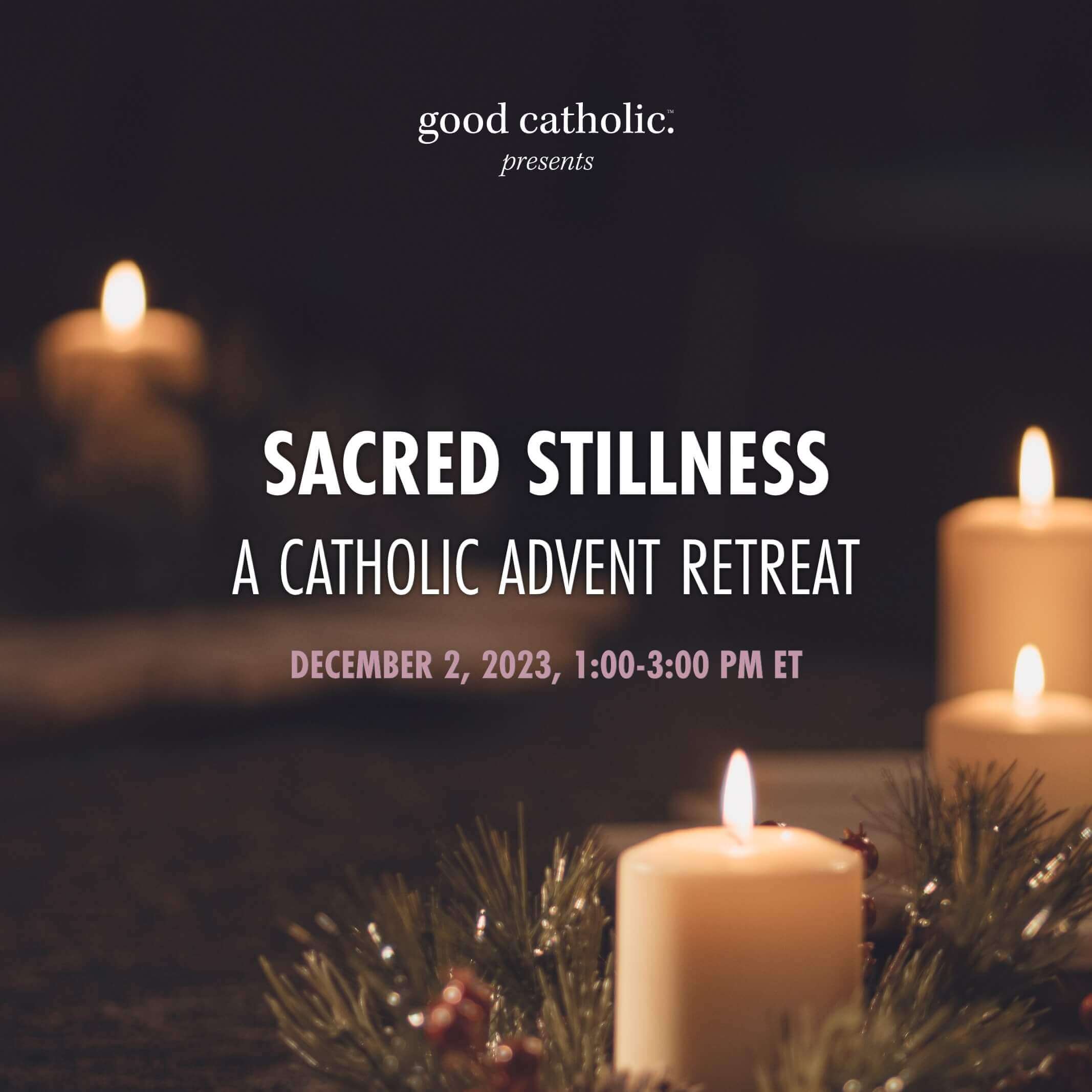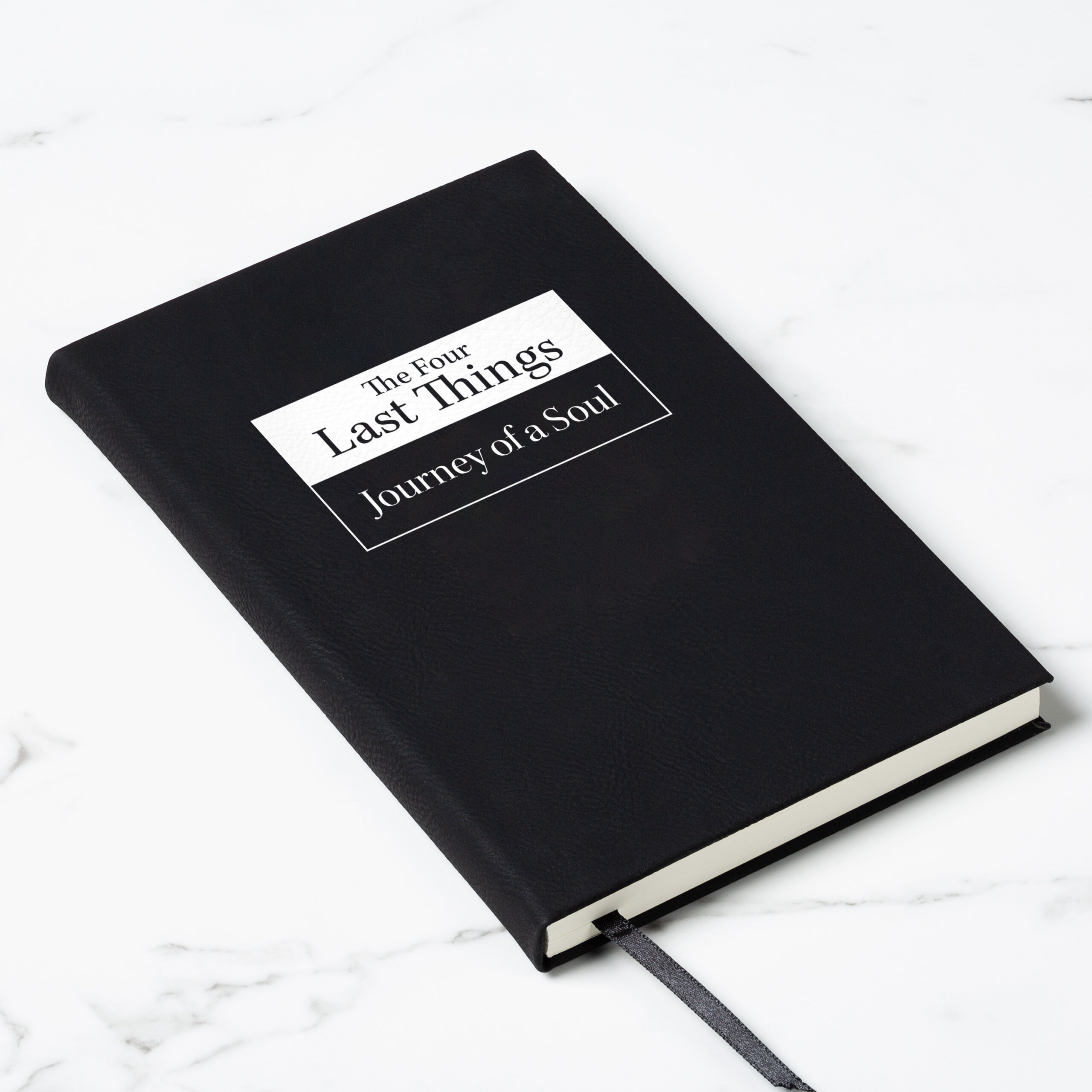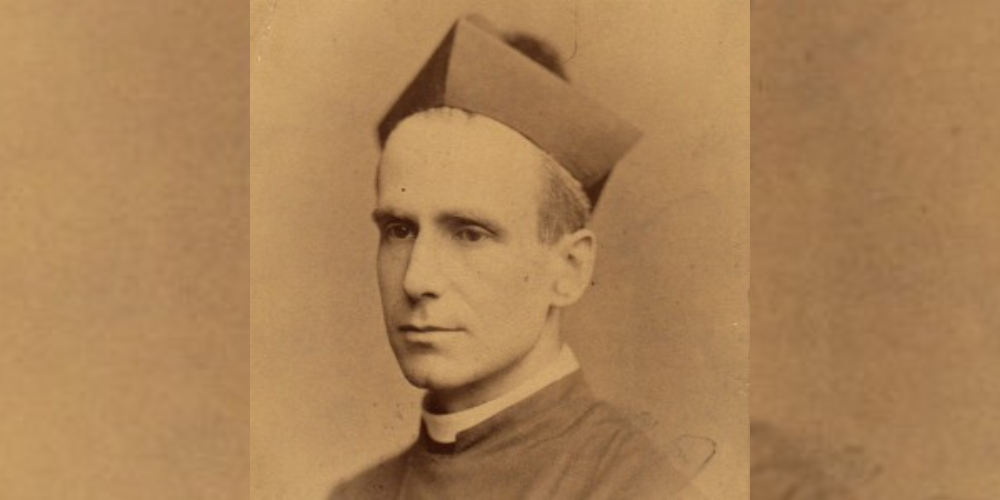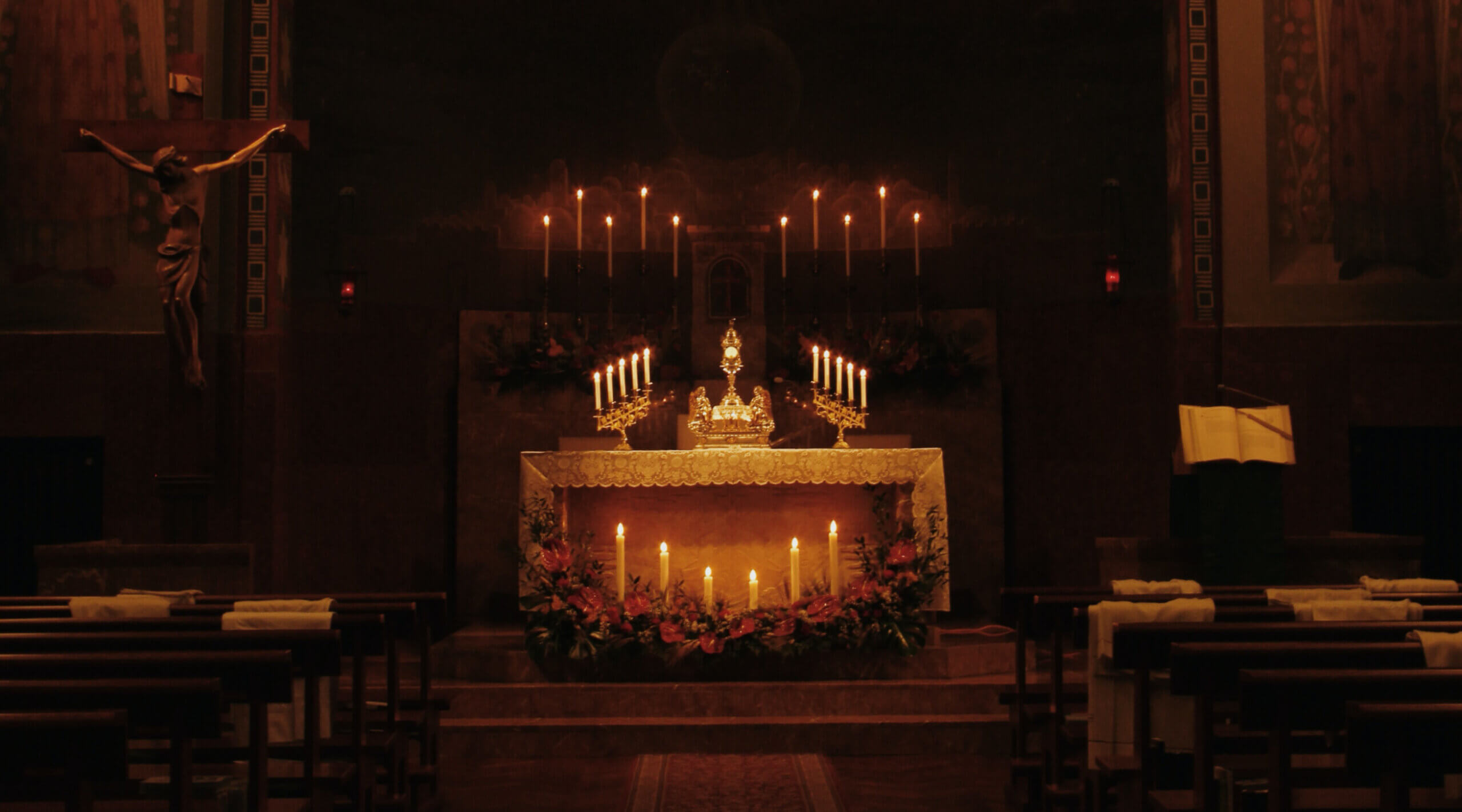
The meeting with Our Lord will not come unexpectedly for the Christian who has been on the watch. For him, He will not come like a thief in the night. There will be no surprises because there will already have been many meetings with Him each day…
In Conversation with God, Advent Volume
If you are like me, you have often arrived at Christmas Day spiritually unprepared. This can be a major disappointment when it happens. We start out with great hopes for the holy season of preparation that is Advent, but somehow, by the time we are lighting the candle on the 3rd or 4th Sunday of Advent, there is a subtle (or not so subtle) ache that tells us we have somehow fallen short; somewhere along the way we have forgotten the “Reason for the season.”
While on the outside things may appear ready, on the inside we have failed to adequately make room in our hearts for Christ.
Perhaps this should come as no surprise—my own heart is often a crowded place. Little and not-so-little worries and concerns occupy real estate in my mind and in my heart, leaving not a lot of opportunity or space to simply spend time with Our Lord. And when I do approach Our Lord, it can feel as if all of my thoughts and anxieties, worries and supplications go before me like heavy baggage; I can barely wait to throw them at His feet.
Rarely do I intentionally go before God empty-handed and wait to hear what He has to say. My pastor often says that we should approach God with humility and openness: “If we come to God with empty hands, He will fill them. If we come with hands full of ourselves and our attachments, He will find no place to put Himself.” When we approach Our Lord as an empty vessel, we are asking Him to fill us as He pleases.

These words from my pastor take on special meaning in Advent, for we know that when Mary and Joseph searched for a place in Bethlehem, they found no one who would take them in: “Foxes have dens and birds have nests, but the Son of Man has no place to lay his head” (Luke 9:58).
And yet Advent is a time to “pay heed to Him who is approaching.” The Church sets aside Advent as the special season to wait for Our Lord in anticipation of Christmas. It’s the perfect time to practice coming before Him empty-handed…to wait and hear what He has to say.
There are lots of obstacles that prevent us from spending that precious time with Jesus. Perhaps our focus shifts to the many practical necessities, such as decorating, cooking, or shopping. Maybe we have other challenges in our lives that overwhelm us emotionally, making it difficult to bring to mind the spiritual blessings of Advent. Or maybe we simply are so busy with work, family, and other obligations that we feel we don’t have time for recollection.
How can we overcome these obstacles and focus on the right things so that we can have a truly meaningful and holy Advent?
The following are three ways—I might even say three gifts we can offer ourselves—to have a transformative Advent:
- Put aside concrete distractions
- Draw near to God in your heart
- Repent
Let’s look at these three ways to see how they might be tools for a holy and peace-filled Advent.
1. Put Aside Concrete Distractions
Advent has often been called a “Little Lent.” This is because both Advent and Lent are seasons of preparation. We prepare for the coming of the Savior in Advent (both commemorating His birth and looking forward to His second coming at the end of time) and we prepare for His Passion, death, and Resurrection in Lent. Lent and Advent are distinct from Easter and Christmas, even though they prepare us for them.
In our current culture, we are tempted to skip over the penitential aspects of Advent and focus on the joy of Christmas. But focusing only on the joy denies a crucially important truth: that the Christ Child is our Lord and Savior, Who will suffer and die for our salvation. Unlike Lent, the penitential observances of Advent always have a festive character to them, which is why we retain the Alleluia at Mass during Advent, but not during Lent. Yet our Advent can be transformed when we lean into both the penitential aspect and the festive one.
In fact, the one can bring the other into greater focus.
By putting aside those things that are within our control, those things that keep us from focusing on Christ during Advent, we go a long way towards opening the door to the true joy of the season. The one “thing” that comes to my mind immediately is technology. In fact, in his homily on Christ the King Sunday, our priest implored us to fast in some way from technology this Advent. He promised if we do that, we will be better for it. “Put it aside,” he said, telling us to decide for ourselves the best way to do this and to stick with it. Whether it is refraining from social media, curtailing our time for cell phone usage, or some other method, he then told us to use that newfound time and spend it with Our Lord.

There are some amazing personal benefits to this as well, he promised. If we truly set aside—daily—our phones or whatever technology distracts us, we can improve our prayer life. Author Tony Reinke, who has written about the effects of technology on the soul, says it well when he describes his own use of it and how it affects his relationship with God:
In the little cracks of time in my day, with my limited attention, I am more apt to speak into social media than I am to pray. That’s the brute honesty of the situation. And because of this negligence, God feels more distant to my life as a result.
Maybe it isn’t social media for you, but other aspects of technology that distract you. We can all benefit from a little digital detox, whatever distractions the digital world creates for us.
An additional way to benefit spiritually from a technology fast
When my children were young, we used to create a “bed of straw” for Baby Jesus. We had a little manger and in a small box next to the manger were pieces of cut yarn. Whenever the kids would make a small sacrifice for someone else in the family, they could take a piece of yarn and place it in the manger. When Christmas came, the hope would be that the manger would be full of soft yarn (“hay”) and Baby Jesus would have a soft place to lay His head.

We can think of this Advent digital detox in much the same way. Every time we intentionally put aside technology, we can whisper a prayer—perhaps the simple Advent antiphon: “Come, Lord Jesus”—so that when Advent is over, our hearts have practiced asking Our Lord to find rest in our hearts and we are more ready for Him at Christmas.
2. Draw Near to God in Your Heart
If Lent brings to mind sackcloth and ashes, then Advent brings to mind silence and stillness. It is the quiet call of an infant God Who draws us to Himself. James tells us in Scripture: “Draw near to God, and he will draw near to you” (James 4:8). Advent is the time to draw nearer to God. As the world gears up with bright lights and noise and shopping and demands on our time, we are called to quiet, stillness, and contemplation. Advent welcomes this quiet and stillness, but our hearts might not be accustomed to it. The lights and the noise of the world are, for many of us, more familiar experiences, and tapping into the silence in our hearts is not an easy task. And yet we must tap into it.
While the idea of drawing near to God sounds wonderful in theory, in practice, it demands something from us. I can tell myself that “I am going to really experience Advent this year,” and I might even believe that with that one deliberate statement, it will be so. But it will likely not amount to much unless I commit to tangible and real ways to draw near to Him.
Some tangible ways might be reading Scripture, visiting Jesus in Adoration, and attending daily Mass more often, especially on the Church’s feast days.
Another way might be to spend some time meditating on what may have taken place in the heart of Mary during the nine months of patient waiting. We might imagine how she reflected throughout those months upon that moment of silent prayer when Gabriel announced she would be the Mother of God; how she, filled with grace and the Holy Spirit, allowed that Spirit to elicit her response: “Fiat mihi secundum verbum tuum”—”Let it be done to me according to your word.”
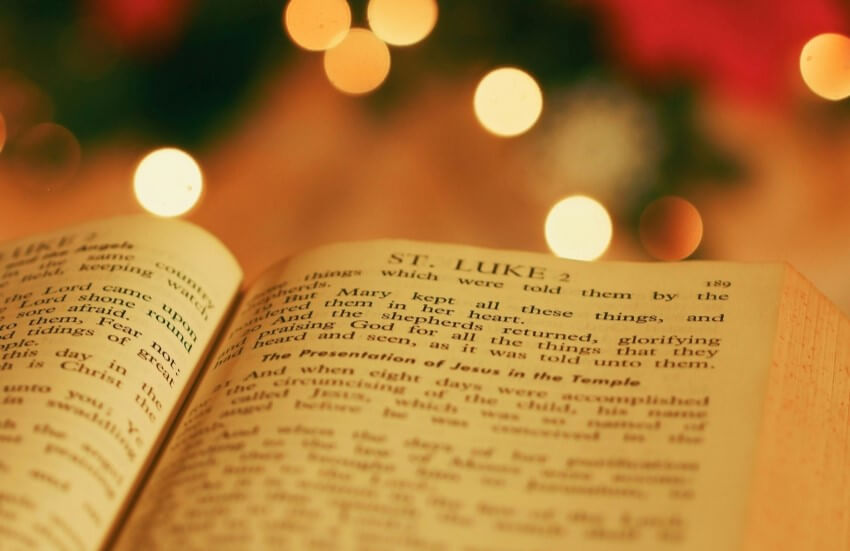
There are many ways to draw near to God during Advent. Think about what you can do, and commit to continuing it throughout the season.
3. Repent
Many of us think of the new year as beginning in January, and yet Advent is the start of the new liturgical year. It truly comes with perfect timing, as so often we are in powerful need of a fresh start. What better season to begin with than the one that anticipates the coming of the Christ Child at Christmas? And what better way to meet the Christ Child than to leave behind the emptiness of our past sins, let go of our false gods, and turn to the One Who truly satisfies?
If we desire transformation, we cannot ignore Confession. We cannot put it aside for some other time. Now is the time. It is the start of a new spiritual year for us, and if we are to take that seriously, we must incorporate Confession into our Advent tradition. In the same way that we talk of resolutions to start off the year with a new slate in January, during the season of Advent we shake ourselves awake and recognize all those areas where we have fallen short.
This is also the meaning of Advent: not only promise, but also conversion and transformation. Plato would say, ‘Orientation to a capability for truth.’ John the Baptist put it more simply: ‘Repent’ (Mt 3:2).
Fr. Alfred Delp, a German priest imprisoned by the Nazis and martyred in 1945, from Advent of the Heart, a collection of his seasonal sermons and Advent meditations that he wrote on scraps of paper while in prison
The Act of Contrition reminds us that true repentance means recognizing that we having sinned; we detest the sin because it offends the God Who loves us and we resolve to resist sin and do what is right. It’s an acknowledgment of guilt that sets us free, breaks the chains of despair, and leads to self-knowledge and amendment.
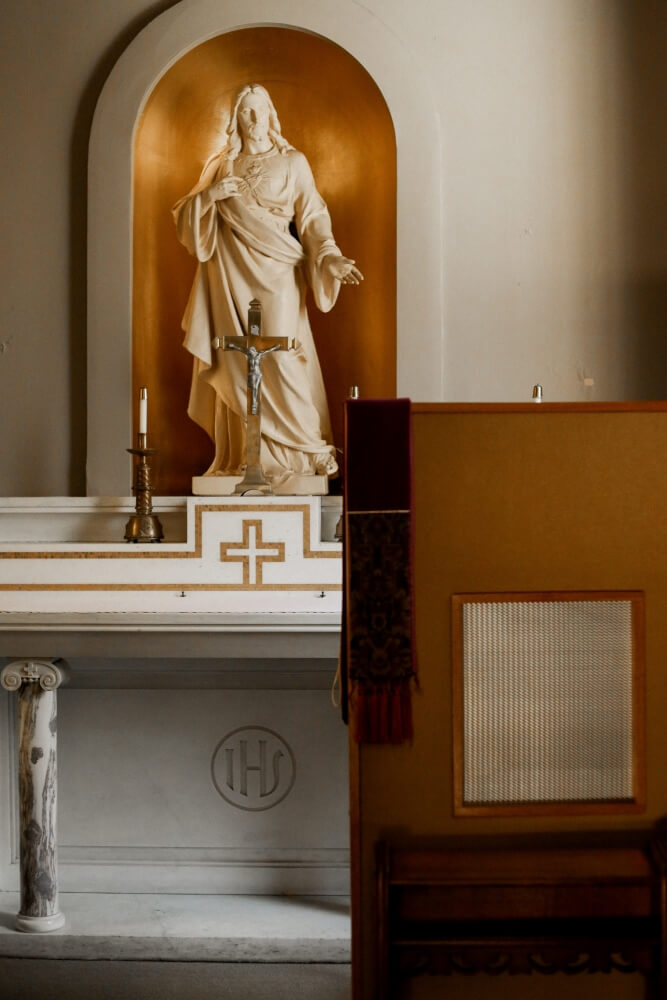
And the Church teaches us that repentance is more than just an acknowledgment of guilt; it means a resulting change in behavior. In her wisdom, she understands that if we feel bad for what we’ve done, but make no attempt to actually struggle against our sins and failings, our repentance is not genuine. Jesus knows everything before we confess our sins to Him, and yet He desires genuine freedom from sin. He desires that we too bring our sins to mind, not so that we can simply feel bad about them and ourselves, but so that He can truly liberate us from them. He desires nothing more than to give us His mercy.
The Lord…is patient with you, not wanting any to perish, but all to come to repentance.
2 Peter 3:9
Are You Seeking Transformation This Advent?
Each year Advent comes. And each year we have an opportunity, throughout this beautiful season, for transformational change. And yet the change will not happen automatically. We can arrive at Christmas a little sad that we did not take full advantage of the season of Advent. Or we can arrive at Christmas with a ready heart.
The choice is truly ours.
It will not be easy; we will feel the pressures of the secular world, the urgency of the season, and the expectations of others. But we have the power to make choices, however small, and set aside time to focus on what the Church offers us these four weeks before Christmas. The path to transformation lies open before us, and is spread with hope.
Good Catholic series Great Advent
Not sure where to start in your Advent preparations? Check out Sacred Stillness: A Catholic Advent Retreat, hosted by Fr. Jeffrey Kirby of the Morning Offering.

